9th Congress of Psychologists of Slovenia
November 16 – 18, 2023. Portorož, Slovenia
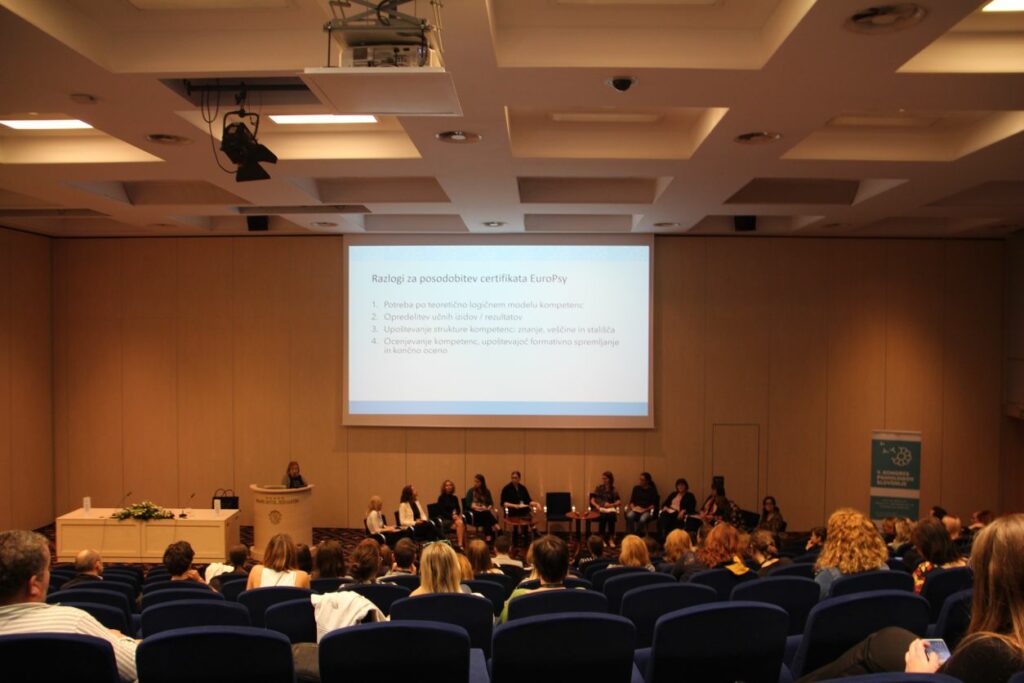
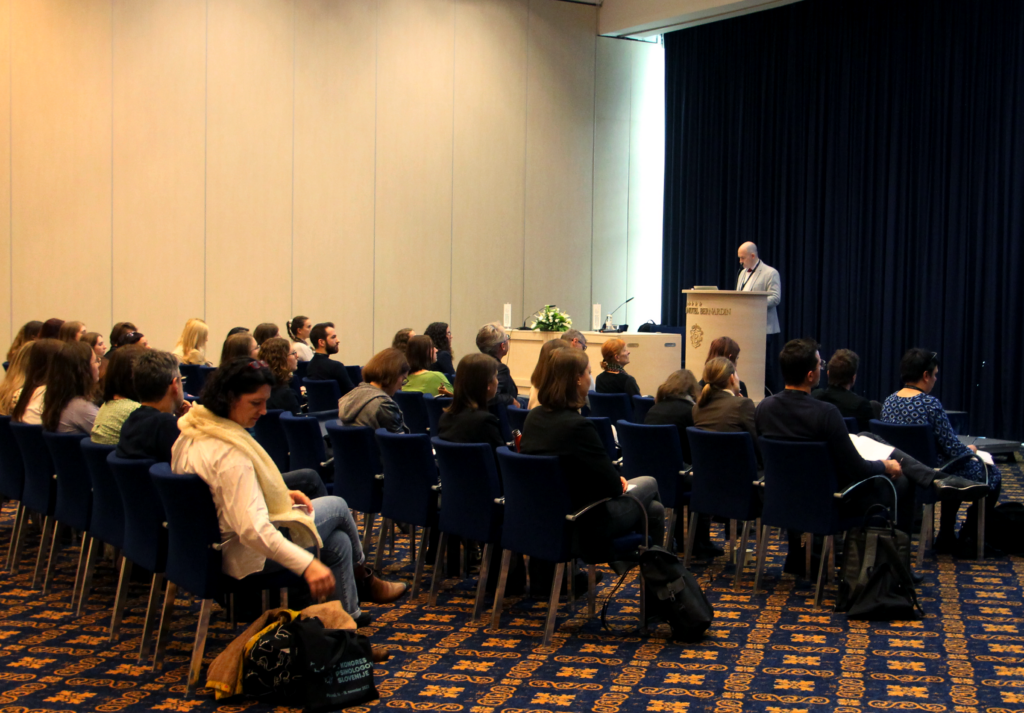
The University of Maribor co-organised the 2023 Slovenian Congress of Psychologists, held from November 16th to 18th at the Congress Centre Bernardin in Portorož. This year’s theme is „I and the environment: interplay of inner and outer worlds“, explored pressing topics such as:
- The role of the natural environment in maintaining mental well-being,
- The effects of social media, and
- The influence of design elements in everyday life.
The SMILE Project presented its research in the official Book of Abstracts, contributing to discussions on how individuals — particularly young people — respond to climate change and environmental challenges. The University of Maribor’s validated tools, the Climate Anxiety Scale and the Climate Change Worry Scale, serve as invaluable resources for understanding and addressing the mental health impacts of environmental concerns. These tools are integral to the SMILE Project’s mission and activities.
Check out the Official Abstract Book HERE (Page: 194 – 195). Visit the Congress official website.
Global Forum on the Ethics of AI: Changing the Landscape of AI Governance
February 5 – 6, 2024. Brdo pri kranju, Slovenia
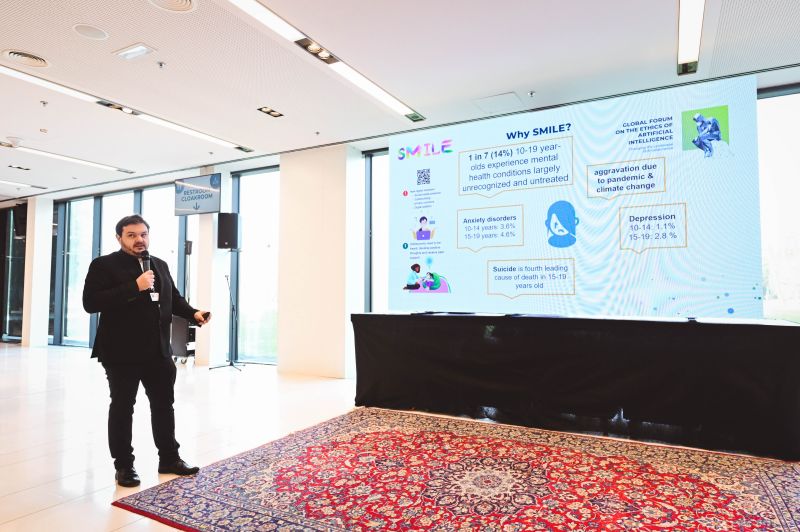
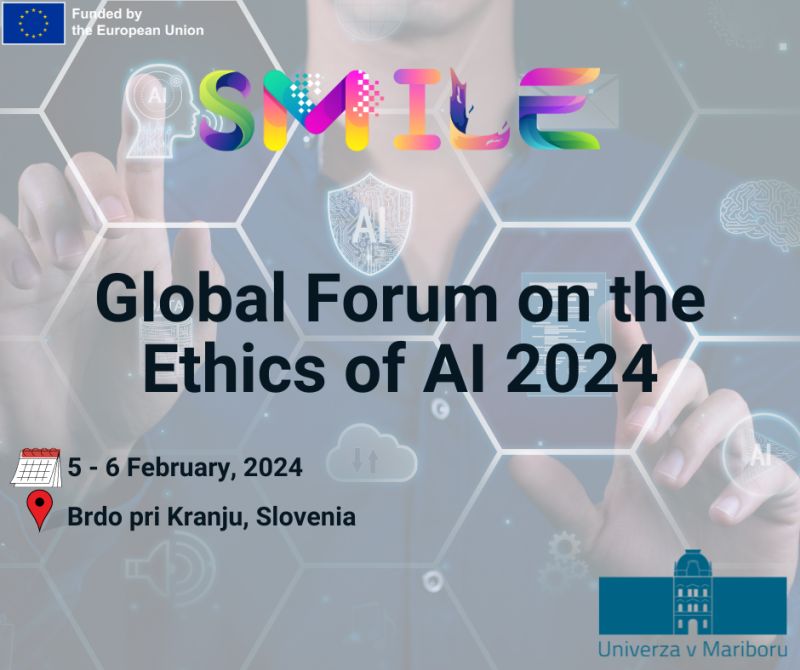
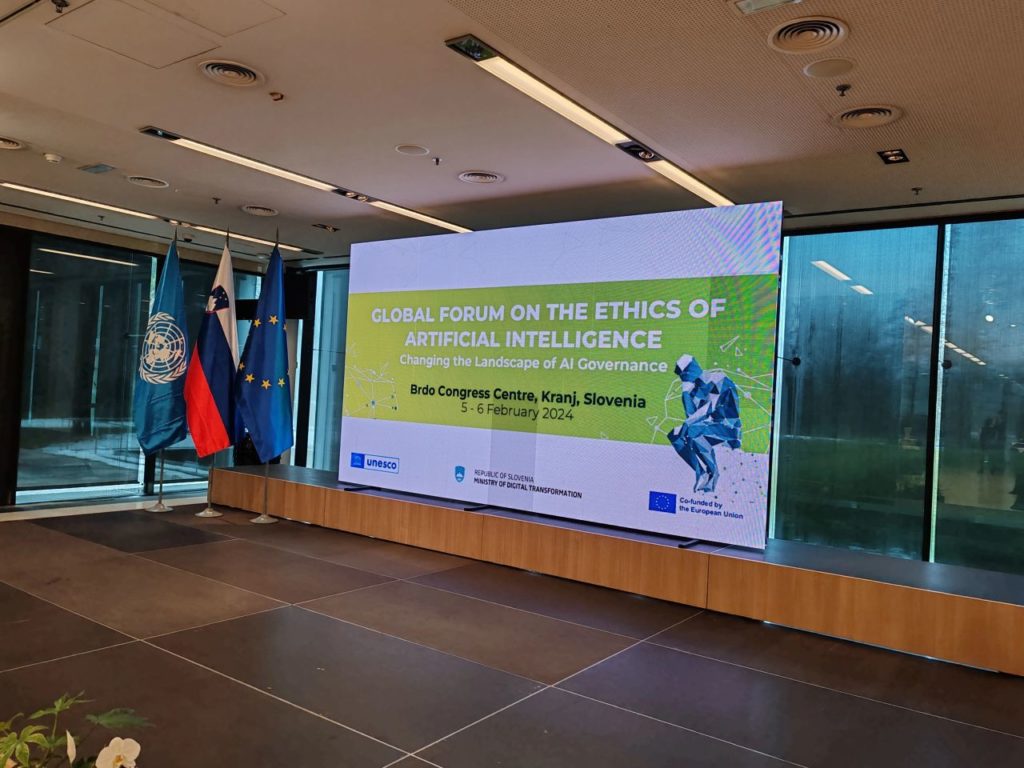
The SMILE project and its ethical considerations on developing digital solutions for youth mental health, was prominently featured at the Global Forum on the Ethics of AI – Changing the Landscape of AI Governance. Hosted by the Slovenian Ministry of Digital Transformation under the patronage of UNESCO, the forum brought together a diverse range of stakeholders to explore the ethical implications of Artificial Intelligence.
The University of Maribor presented SMILE’s approach and emphasised the importance of ethical considerations when working on international collaborations and digital solutions designed to support children and adolescents facing the challenges of modern society.
The SMILE project presentation served a twofold purpose. Firstly, it highlighted the European perspective on the ethical application of AI in the context of youth mental health. Secondly, it served as a powerful reminder of the urgency for ethical solutions, given the pressing need to address the mental well-being of our younger generation.
The University of Maribor’s presentation showed how technology, when guided by strong ethical principles, can be harnessed to create a positive impact on the mental health of our youth. Furthermore, the forum provided a valuable platform to foster international collaboration and exchange diverse perspectives on the ethical dimensions of AI in relation to child and adolescent mental health.
Joint Congress – Società Italiana di Psichiatria & Associazione Italiana di Psicogeriatria
February 9, 2024 , Modena, Italy
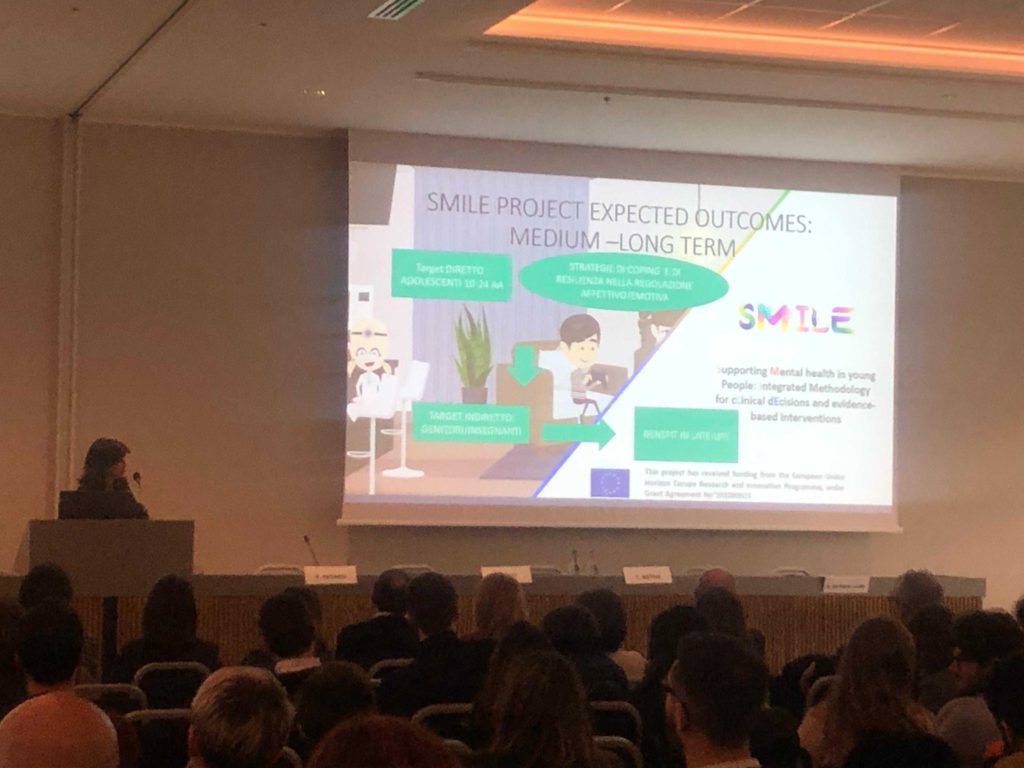
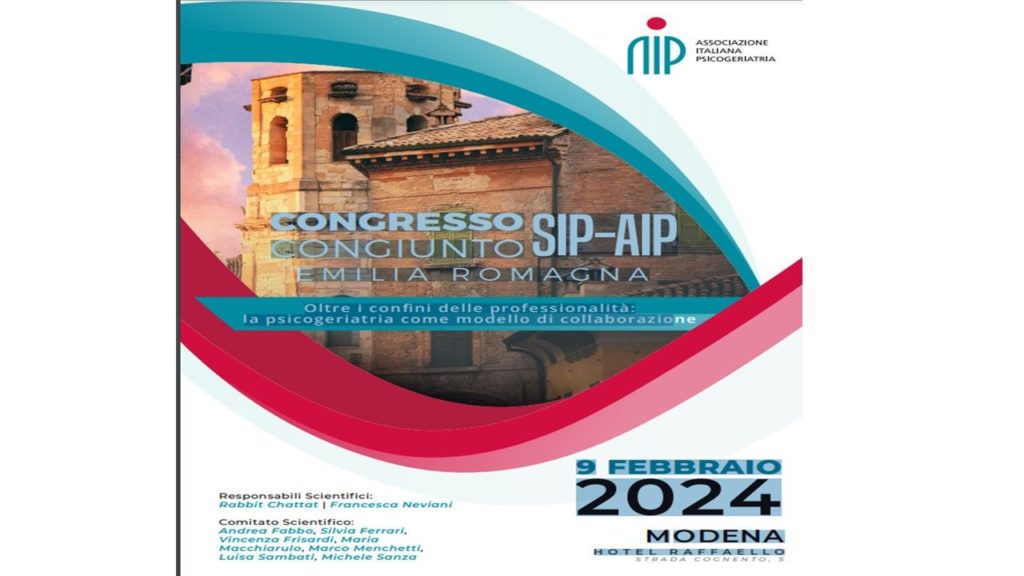
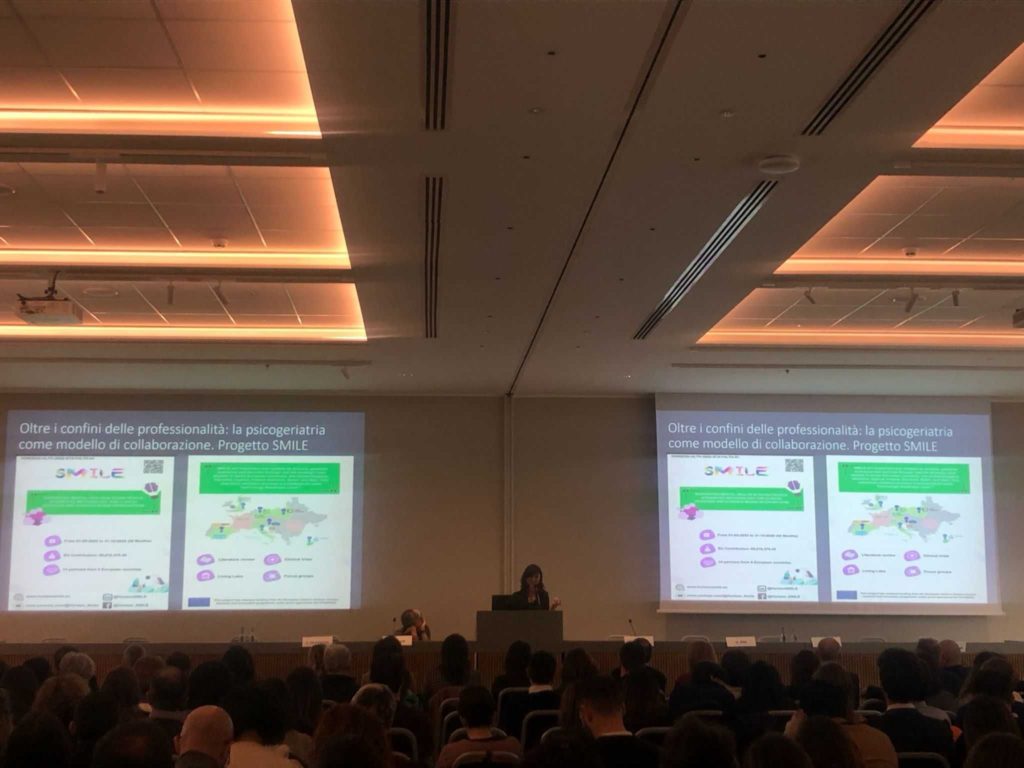
The SMILE project continues to gain momentum across Europe, with this impactful presentation at this prestigious event that brought together leading figures in the field of mental health to discuss advancements and best practices.
IRCCS – Azienda Ospedaliero Universitaria di Bologna showcased the SMILE project’s innovative approach to improving youth mental health, focusing on how early intervention and effective support can have a lasting positive impact on young people’s well-being. The presentation delved into the far-reaching benefits of the SMILE project for society as a whole.
By prioritising youth mental health, we can cultivate a generation of resilient and thriving individuals, ultimately fostering a stronger and more vibrant future. A key theme of the presentation was raising awareness about anxiety, a prevalent challenge faced by young people today. The SMILE project’s commitment to addressing this issue resonated strongly with the audience, highlighting the project’s valuable contribution to improving youth mental health outcomes, and its aim to empower a generation of resilient individuals.
Green Mission for Climate
March 20, 2024 Maribor, Slovenia
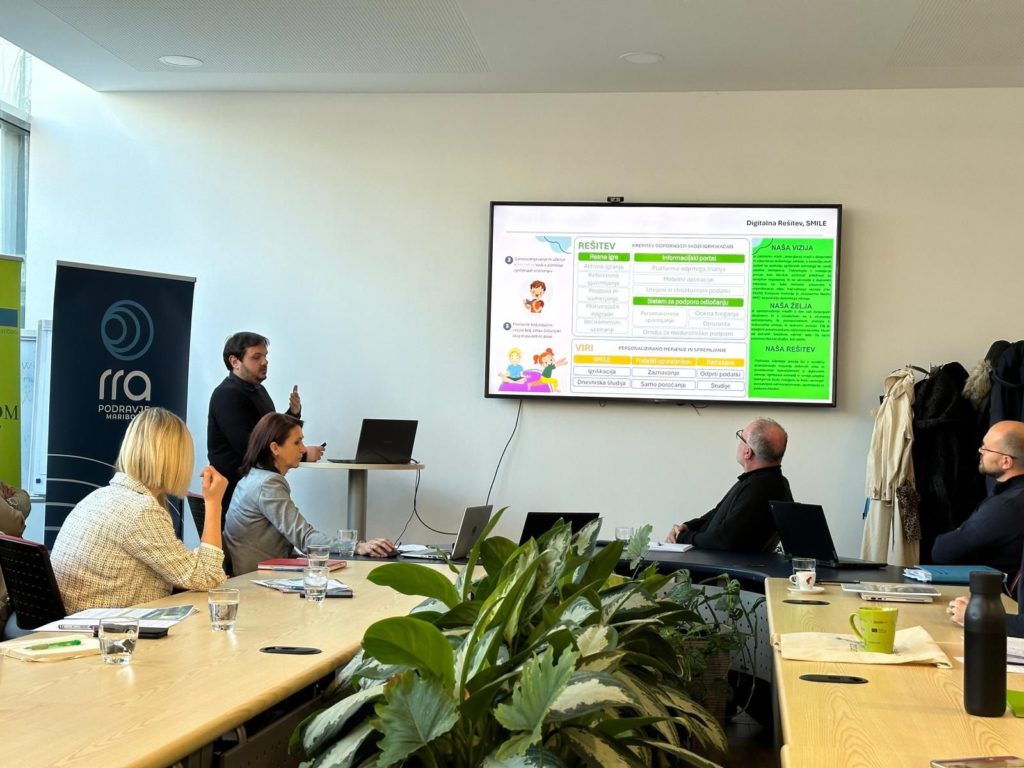
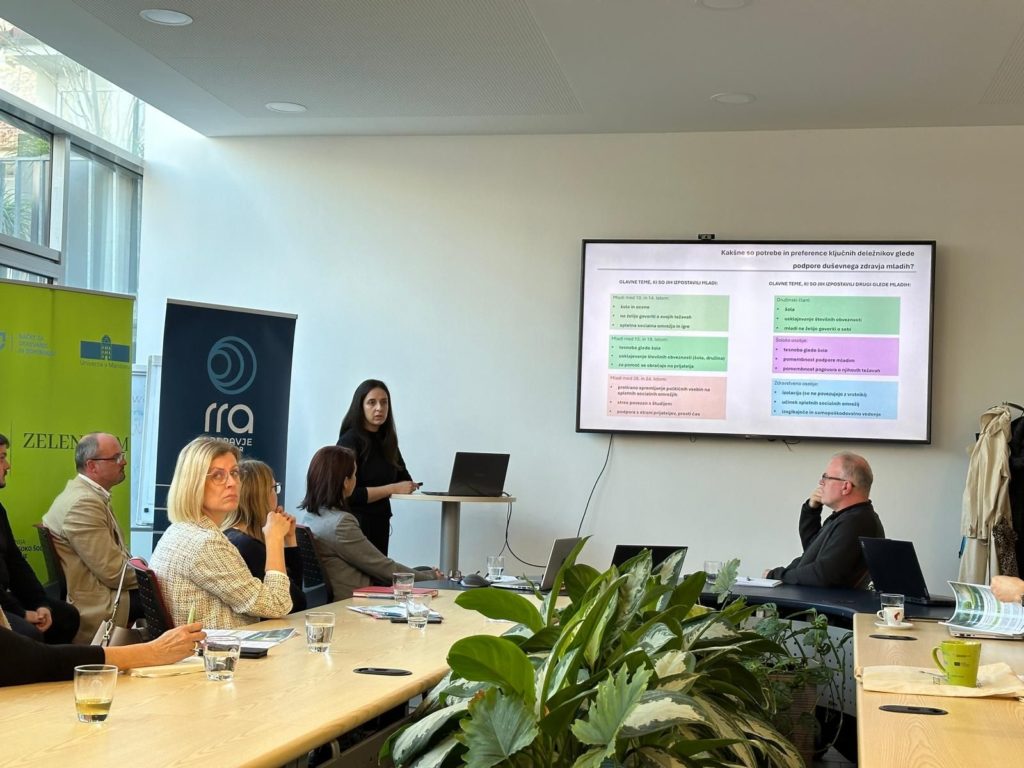
The SMILE project recognises the critical connection between mental health and environmental well-being.
Organised by the Municipality of Maribor, the Green Mission for Climate was a platform for the University of Maribor to present the SMILE project, highlighting its focus on mental health impact on young people in the face of global climate change. The discussions on children’s expectations and needs in a world grappling with climate challenges fostered an open dialogue and understanding.
Key Takeaways:
- The vital link between mental health and environmental well-being.
- The importance of addressing climate change concerns for children and youth.
- Empowering young people to be active participants in building a sustainable future.
SMILE is proud to support initiatives like Green Mission for Climate that promote environmental consciousness and prioritise the well-being of future generations.
The 10th Asian Conference on Aging & Gerontology (AGen 2024)
March 25 – 29, 2024. Tokyo, Japan
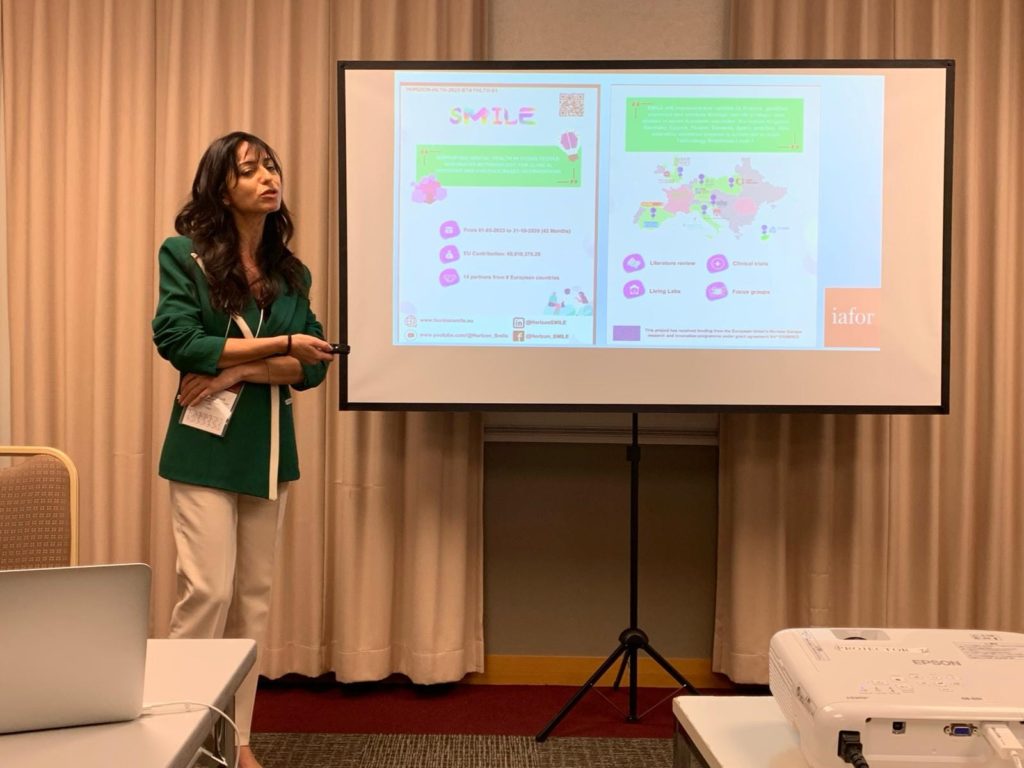
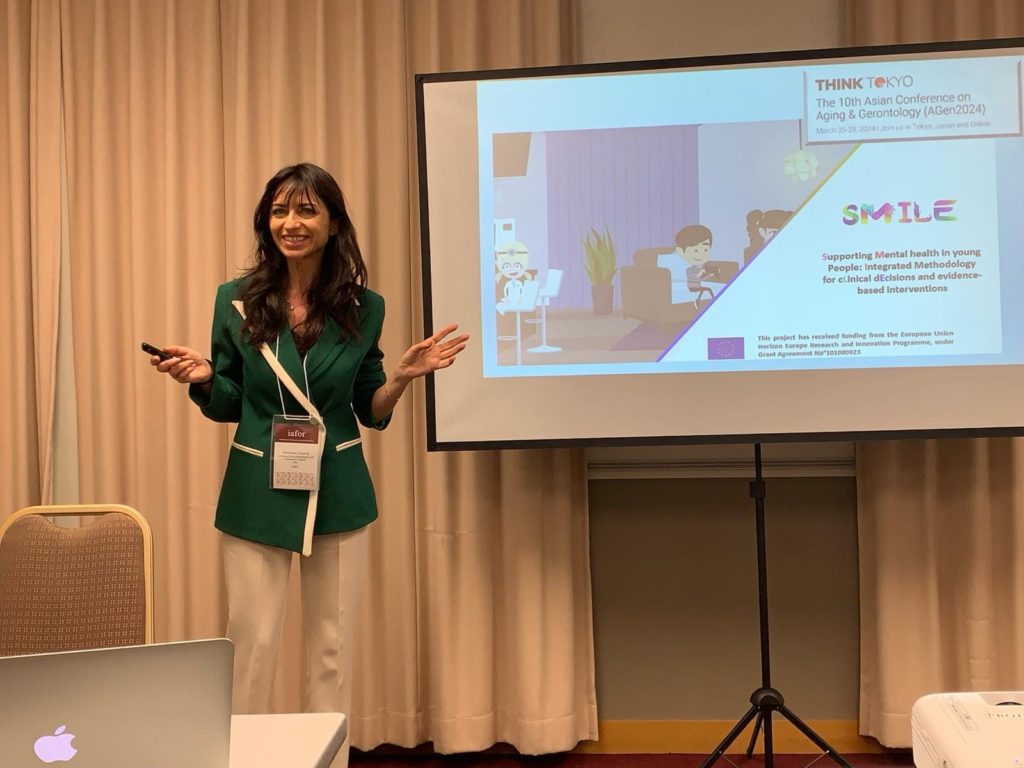
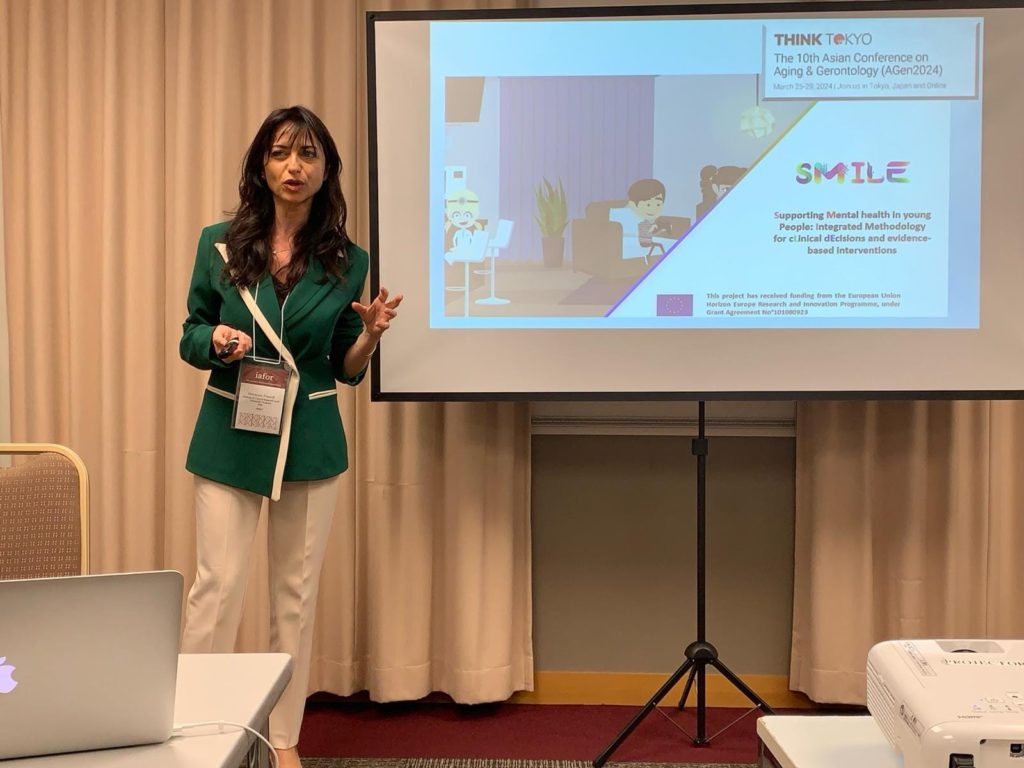
The SMILE project is thrilled to have participated in the prestigious 10th Asian Conference on Aging & Gerontology (AGen 2024), a conference organized by The International Academic Forum (IAFOR). This important event brought together researchers, policymakers, journalists, and editorial managers to discuss critical issues related to aging and gerontology.
IRCCS – Azienda Ospedaliero Universitaria di Bologna presented the SMILE project and its potential for promoting successful aging in a rapidly evolving digital society. The presentation, titled „Successful aging in a faster digital society: a Tech-human health framework for gamification and Digital Games Applications“ explored an innovative tech-human health framework leveraging the power of gamification and digital games. The presentation delved into how this framework can contribute to enhancing physical, cognitive, and social well-being among young people and beyond. This approach holds immense promise for empowering individuals to thrive in a world increasingly influenced by technology.
Key Takeaways:
- The potential of gamification and digital games to promote healthy living.
- The importance of a tech-human health framework for holistic well-being among young people and beyond.
- Fostering engagement and social connection through innovative digital solutions.
SMILE is committed to exploring the potential of technology to improve the mental well-being of individuals at an early stage of life.
The 28th International Conference on Circuits, Systems, Communications, and Computers (CSCC)
July 19 – 22, 2024. Heraklion, Crete Island, Greece.
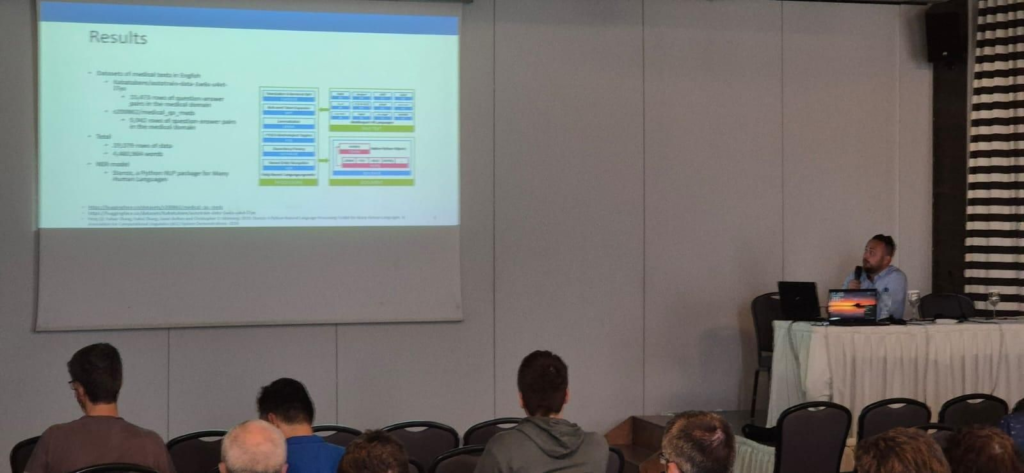
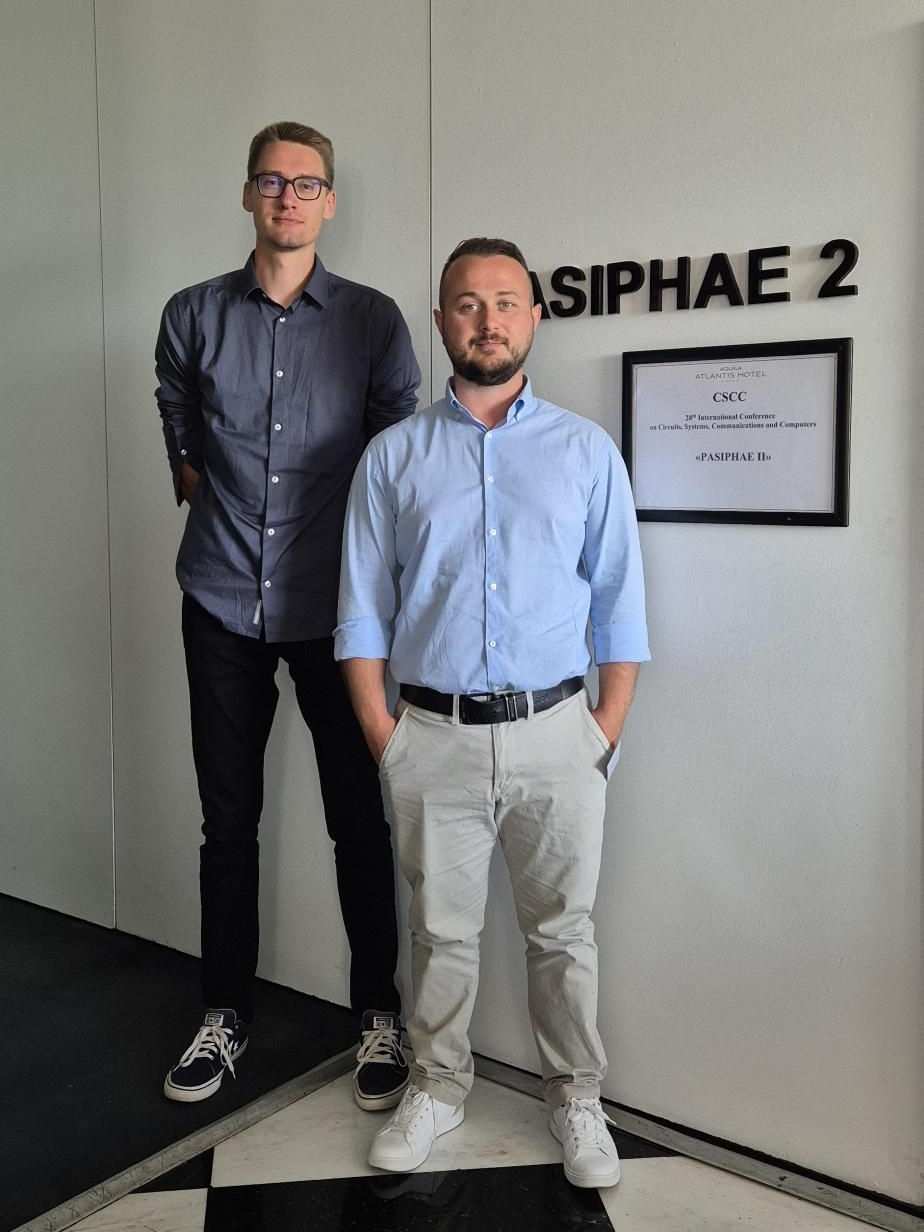
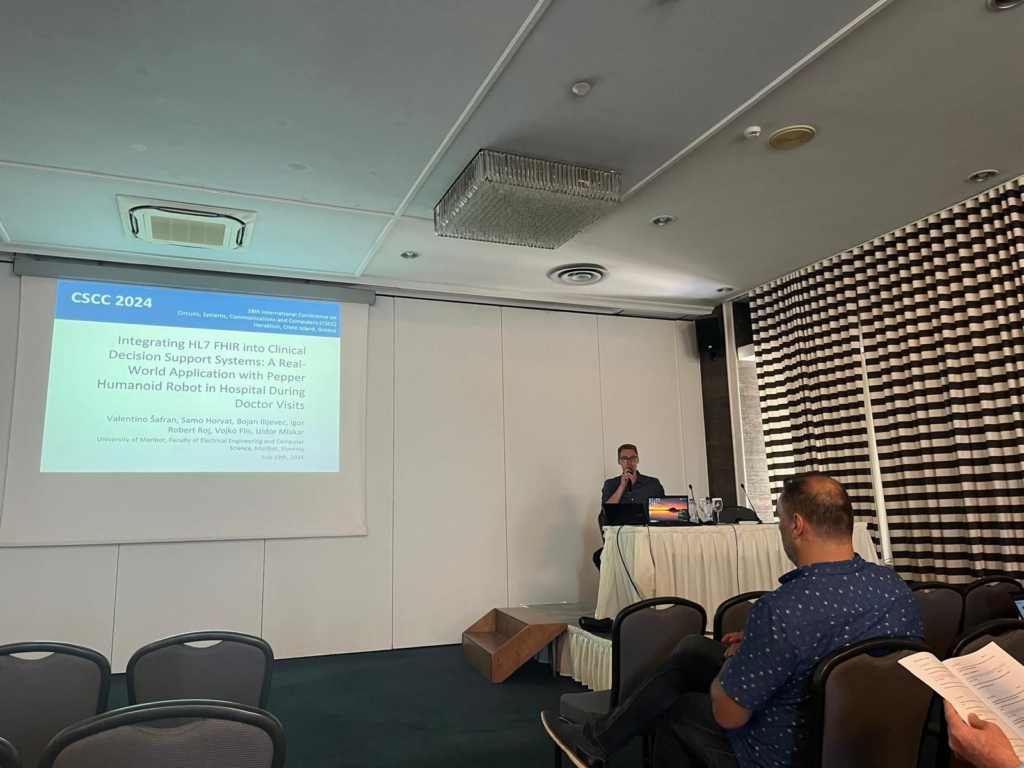
The University of Maribor presented its work on developing and integrating NER models and HL7 FHIR server at the 28th International Conference on Circuits, Systems, Communications, and Computers (CSCC). These advancements highlight the ongoing research and development efforts within the SMILE project.
Our Partner presented significant advancements in developing NER models to extract symptoms in Slovenian. This paves the way for future multilingual support within the SMILE application, enabling sophisticated symptom extraction capabilities for various languages.
The team also presented on the development and integration of the HL7 FHIR server, which will store SMILE user-related data and services results as FHIR resources. This, coupled with other SMILE partners‘ components, will provide standardised and secure storage of integrated data. This interoperability ensures seamless integration of different components within the SMILE ecosystem and guarantees data security.
38th Annual Conference of the European Health Psychology Society (EHPS 2024)
September 03 – 06, 2024. Cascais, Portugal.
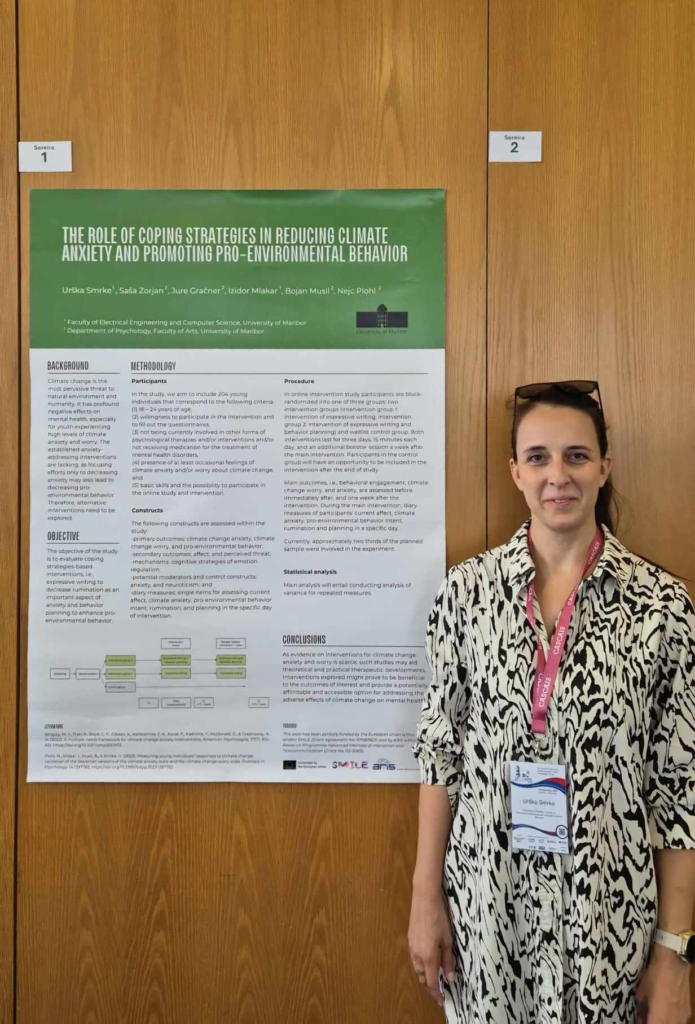
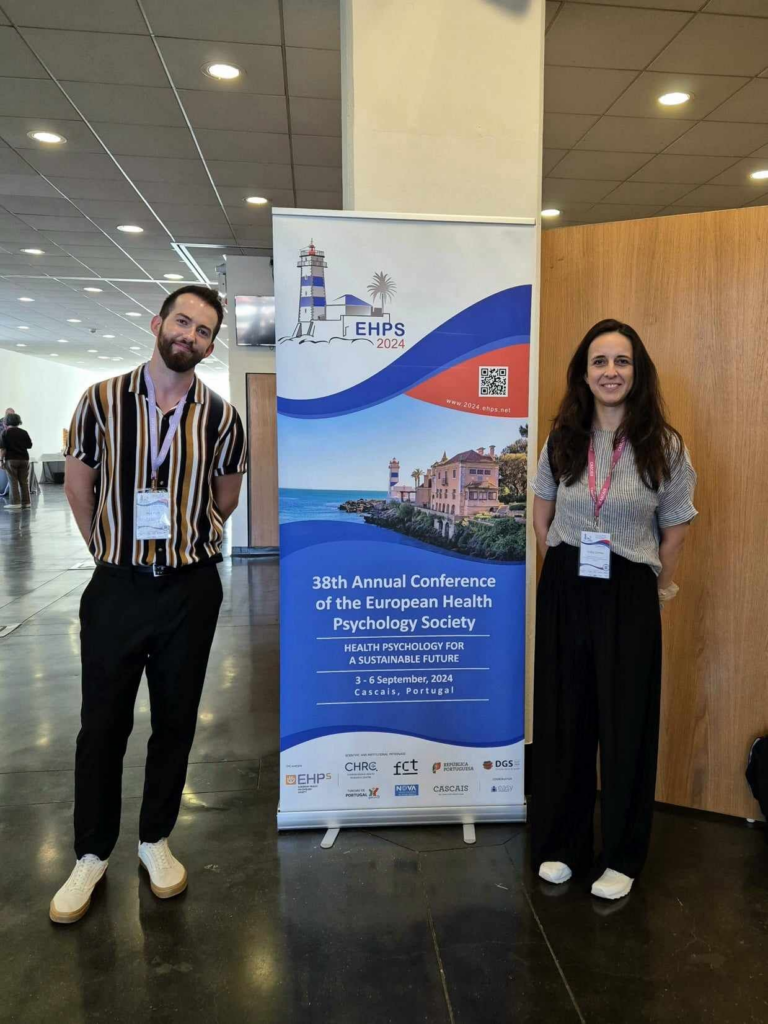
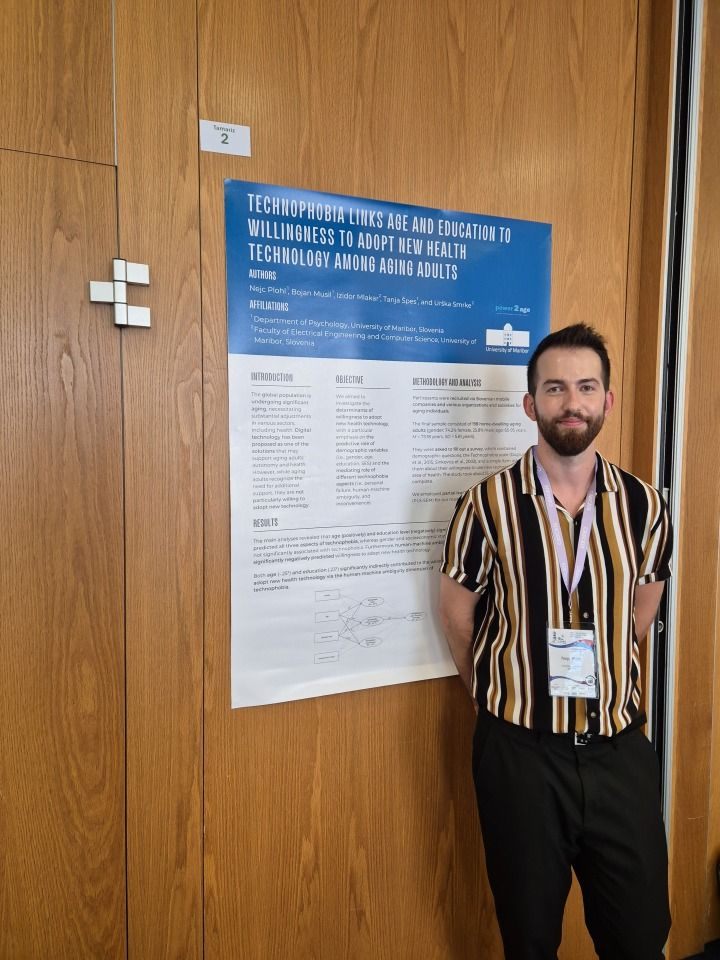
The University of Maribor participated in the 38th Annual Conference of the European Health Psychology Society (EHPS 2024), held from September 3-6, 2024, in the beautiful coastal city of Cascais, Portugal. This prestigious event brought together over 1000 leading health psychology professionals, creating an unparalleled platform for SMILE researchers to foster collaborations on innovation in health psychology. The contributions included two posters presentation:
1️⃣ Technophobia links age and education to willingness to adopt new health technology among aging adults
- Authors: Nejc Plohl, Bojan Musil, Izidor Mlakar, Tanja Špes, Urška Smrke
- Project: power2age
- Summary: This research investigates how technophobia—a fear or anxiety associated with new technologies—mediates the effects of age and education on the willingness of aging adults to adopt new health-related technologies. These findings offer valuable insights into developing inclusive strategies for enhancing technology acceptance among older populations.
2️⃣ The role of coping strategies in reducing climate anxiety and promoting pro-environmental behavior
- Authors: Urška Smrke, Saša Zorjan, Jure Gračner, Izidor Mlakar, Bojan Musil, Nejc Plohl
- Project: SMILE
- Summary: This presentation explored how effective coping strategies can alleviate climate anxiety and simultaneously encourage environmentally friendly behaviours. The study underscores the importance of psychological resilience in addressing the climate crisis and its potential to inspire collective action.
Trough this conference, SMILE researchers highlighted the project’s commitment to addressing pressing societal challenges through interdisciplinary research and collaboration. By blending psychological insights with innovative technological approaches, our researchers contribute to a more equitable, sustainable, and health-conscious future.
Child & Adolescent Psychiatry Conference (DGKJP Kongress)
September 18 – 21, 2024. Rostock, Germany.
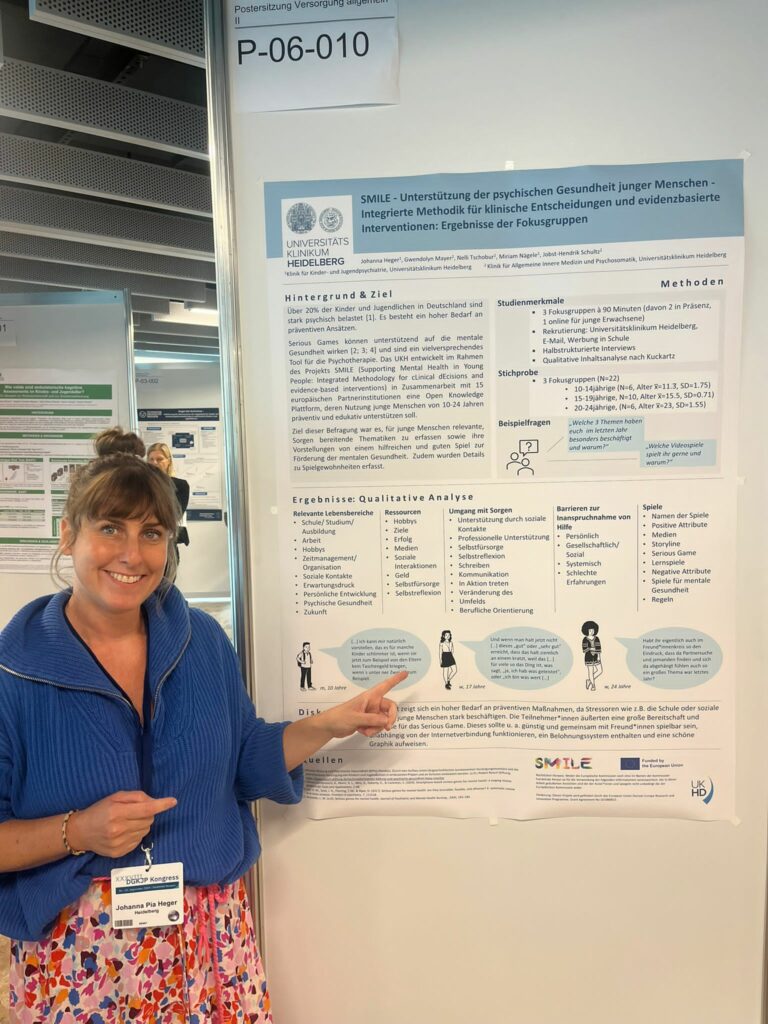
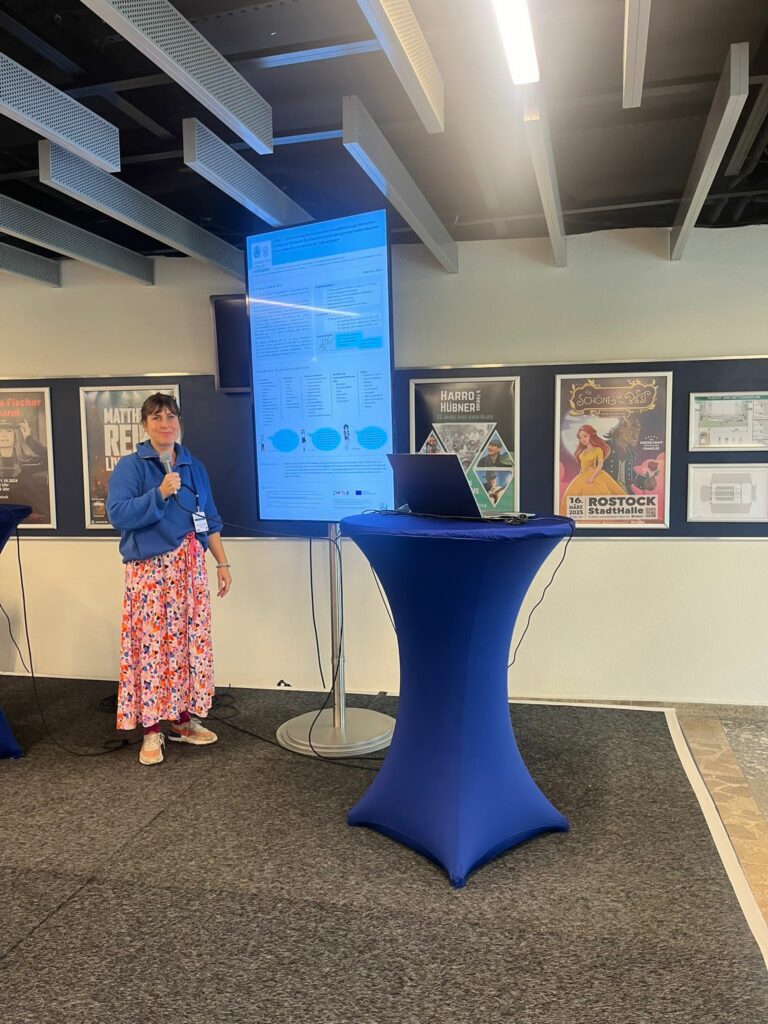
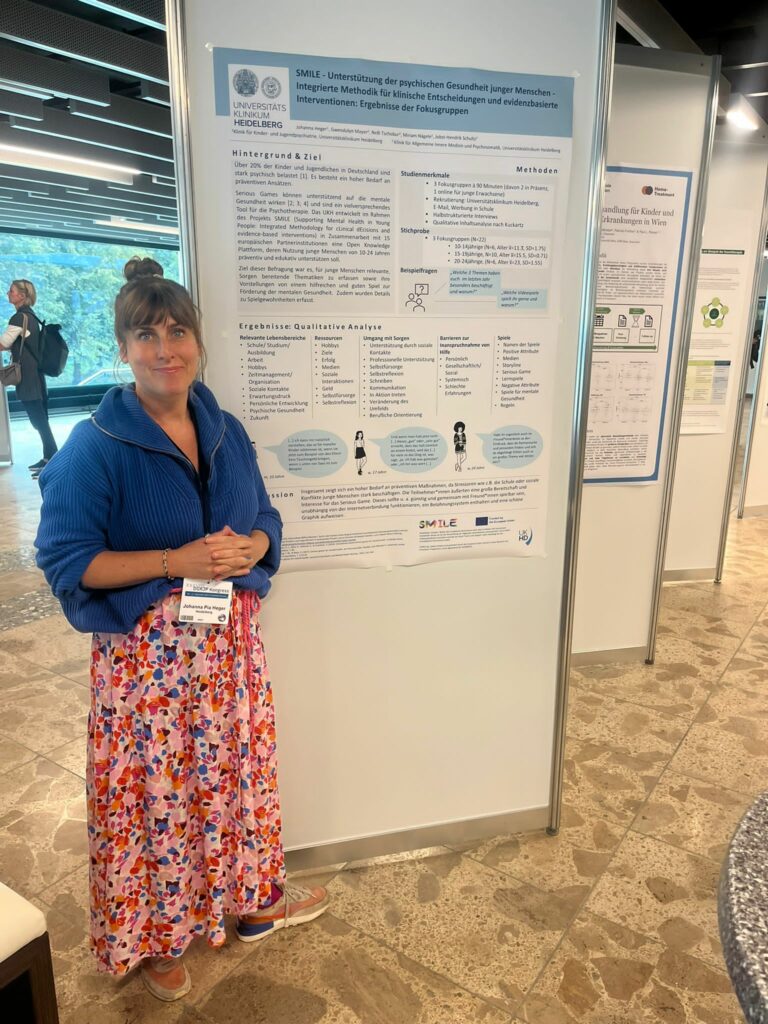
The SMILE project was proudly represented at the DGKJP Congress 2024, a renowned event that gathers experts in child and adolescent psychiatry from across Germany and beyond. Our partner, Universitätsklinikum Heidelberg (UKH), attended the congress to present a poster detailing the key findings from SMILE focus groups, which engaged children, adolescents, and young adults
During the presentation, our partner highlighted the SMILE project’s innovative approach to integrating digital tools and mental health support, emphasising the voices of young people in shaping the future of mental health care. The findings from the focus groups, which explored themes such as access to care, personal well-being, and digital solutions, resonated deeply with the audience. The presentation was met with great enthusiasm, as the engaging design of the SMILE poster (in german) and the SMILE logo received significant praise.
Our team’s efforts were further recognised with a Poster Prize, awarded by the congress organisers. This acknowledgment celebrates both the design and the impactful content of the presentation. We are thrilled to have had the opportunity to share our work at such a high-profile event and grateful for the recognition of the SMILE project’s contribution to advancing mental health care for young people.
Barcelona Leadership Course (BLC 2024)
September 26 – 28, 2024. Barcelona, Spain.
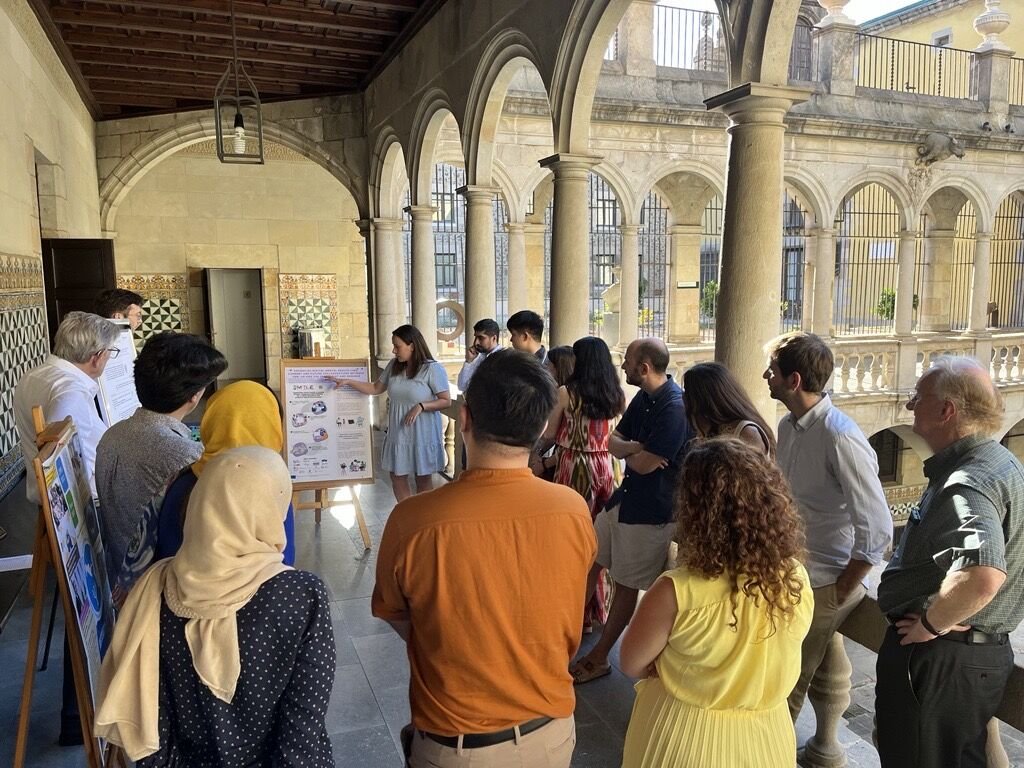
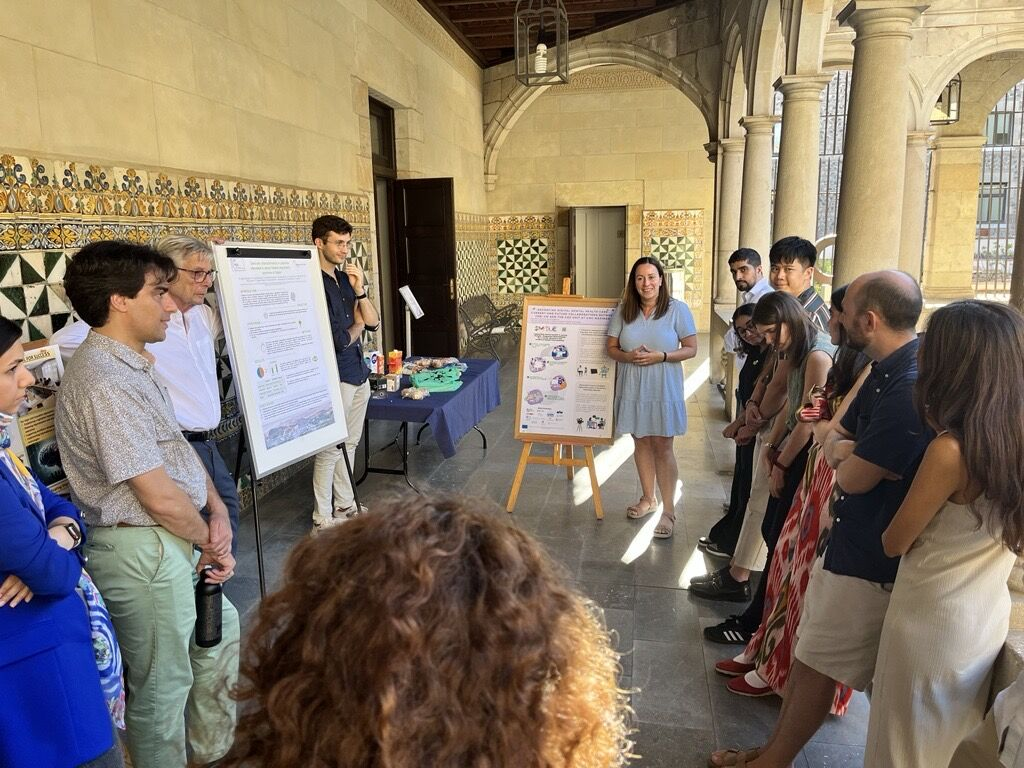
Our partner, University of Maribor, made a multidisciplinary contribution to Digital Mental Health by participating to the prestigious Course on Leadership and Professional Development of Young Psychiatrists held in Barcelona. Sara Močnik, a researcher and PhD student in psychiatry, showcased the transformative potential of the SMILE project, integrating cutting-edge technologies like gamification and Artificial Intelligence to revolutionise adolescent mental health care. This project exemplifies a unique collaboration between the HUMADEX research group at the Faculty of Electrical Engineering and Computer Science, University of Maribor, and the Child and Adolescent Psychiatry Unit at UKC Maribor / University Medical Centre Maribor. Together, we are driving innovation to make mental health support more accessible and effective for adolescents aged 10-24. Sara’s presentation emphasised several aspects of the SMILE initiative:
- Gamification and AI in Adolescent Mental Health: Leveraging gamification techniques and AI-based tools to make mental health interventions engaging and effective for adolescents, and promote well-being and mental health literacy among youth.
- AI-Based Screening Interviews: Developing cutting-edge solutions for early and accurate detection of mental health conditions, making interventions timely and impactful.
- Future Work: Sara’s doctoral thesis will focus on Digital Biomarkers for Borderline Personality Disorder (BPD), advancing the precision and personalisation of mental health care.
Adolescents face increasing challenges to their mental health, yet access to effective, timely support remains limited. The SMILE project addresses these challenges through evidence-based, technology-driven solutions designed to empower young people and their caregivers. By combining expertise in psychiatry, engineering, and data science, this initiative sets a new benchmark for digital mental health care. Sara’s work and the broader SMILE initiative exemplify the European commitment to innovation under the Horizon Europe framework, advancing knowledge and promoting well-being on a global scale.
German Congress for Psychosomatic Medicine and Psychotherapy (DGPM/DKPM)
March 12 – 14, 2025. Berlin, Germany.
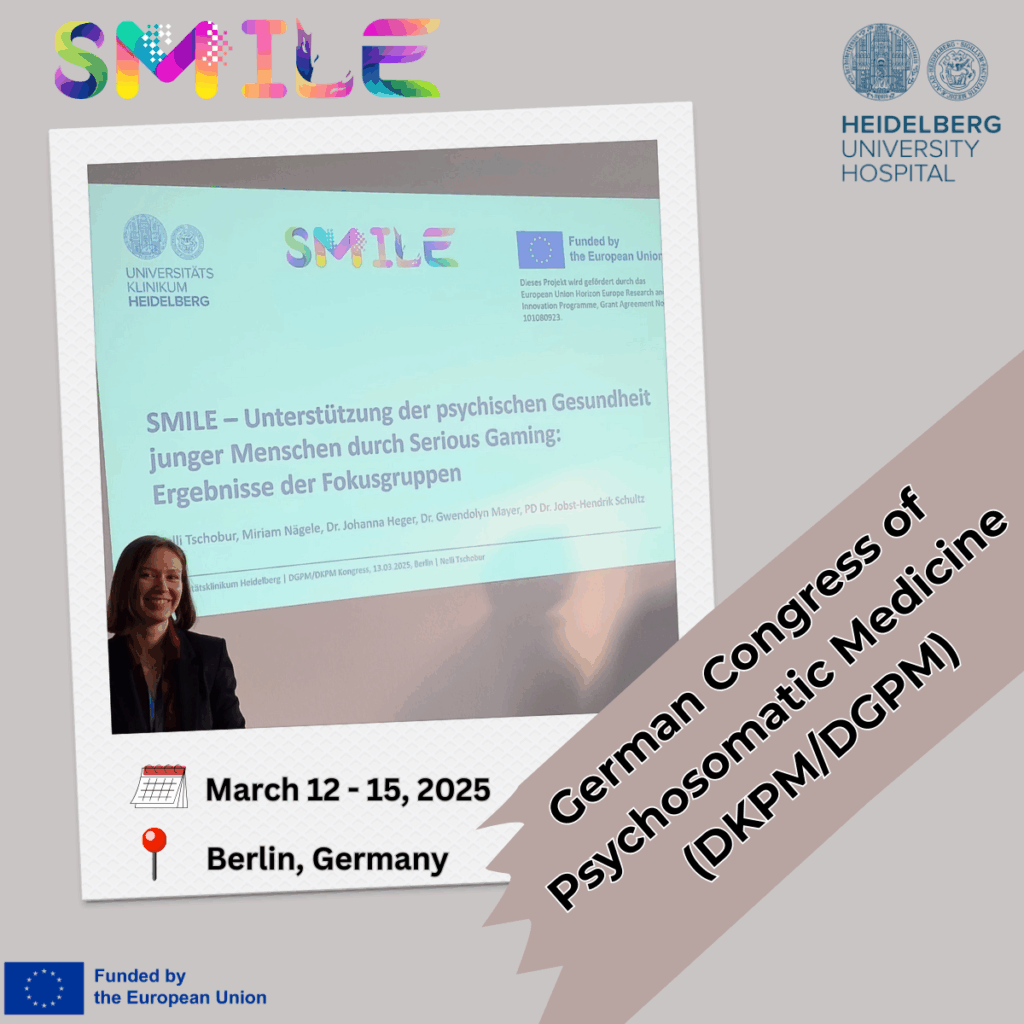
From March 12–14, 2025, Universitätsklinikum Heidelberg (UKH) attended the Annual German Congress for Psychosomatic Medicine and Psychotherapy (DGPM/DKPM) in Berlin, one of Germany’s foremost interdisciplinary events in mental health research and clinical practice. Under the 2025 congress theme “Relationships in Crisis – New Beginnings„, the conference brought together over 1,000 professionals to address the psychosocial impacts of contemporary societal challenges, addressing issues like loneliness, trust, and social cohesion.
During a dedicated session on Child and Adolescent Psychotherapy, our partner Universitätsklinikum Heidelberg (UKH), delivered a presentation on SMILE’s human-centered approach to digital mental health, highlighting the potential of co-created tools, such as the SMILE serious game and the Companion Mobile App, to enhance early detection, emotional resilience, and user engagement among adolescents and young adults aged 10 to 24. The session focused on SMILE’s commitment to co-creation, combining clinical evidence with youth participation to ensure that the digital tools developed are both scientifically robust and psychologically meaningful.
With more than 1000 participants throughout the conference, this participation marks a key milestone in the project’s dissemination strategy, strengthening academic dialogue around digital innovation in mental health and fostering new synergies within the psychosomatic medicine community.